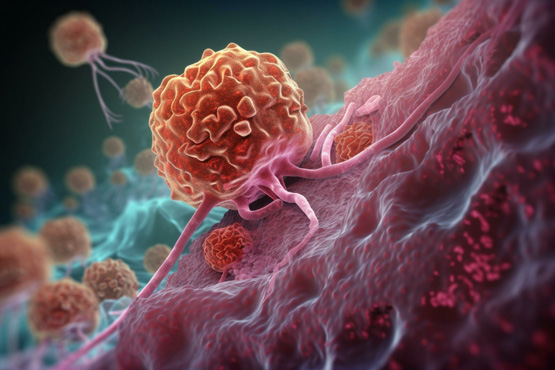WARTS AND CANCER

Warts and Cancer Relationship
Warts are formed by various strains of a common and diverse family of viruses known as the human papillomavirus (HPV). Some of these viruses can lead to mutations that may cause certain types of cancer. However, it would be misleading to state that every wart is associated with cancer.
Cervical Cancer and Warts
Cervical cancer is generally caused by specific types of HPV. Particularly, two types named HPV-16 and HPV-18 play a role in the etiology of cervical cancer. These high-risk types of HPV can affect the DNA in cervical cells, leading to abnormal cell growth. These high-risk HPV types usually do not form noticeable warts. However, regular smear tests can help detect the infection at an early stage, allowing preventive treatments to be applied.
Laryngeal Cancer and Warts
HPV, especially HPV-16, can lead to laryngeal cancer. This type of cancer generally develops as a result of an HPV infection and mostly affects the mouth, throat, and vocal cords. An HPV infection can lead to abnormal changes in cells that can cause laryngeal cancer. However, not all HPV infections lead to laryngeal cancer and usually the development of these types of cancers occur when combined with a range of other factors.
Anal Cancer and Warts
Anal cancer is often caused by specific types of HPV, especially HPV-16 and HPV-18. These viruses can cause abnormal cell growth in the anal canal. Like in cervical cancer, these HPV types usually do not form noticeable warts. However, regular screenings and follow-ups can reduce the risk of anal cancer.
Skin Cancer and Warts
Skin warts are generally harmless and are mostly formed by the low-risk types of HPV (Type 1, 2, 4, 27, and 57). However, a wart that is continuously irritated or changing could be a sign of skin cancer. Types of skin cancer are generally triggered by other factors, like exposure to UV rays. Nevertheless, the presence of a changing wart should be taken seriously and be examined by a specialist.
In conclusion, while some types of HPV can lead to certain types of cancer, most warts are not associated with cancer. Vaccines that provide protection against HPV and regular screenings are effective strategies in preventing these types of cancers. However, if you notice an abnormal wart or skin change, you should inform your physician.
This article may also interest you

Fear of transmitting the disease to each other reduces sexual desire and pleasure from intercourse in couples and negatively affects sexual activity.
Read more

 TR
TR EN
EN